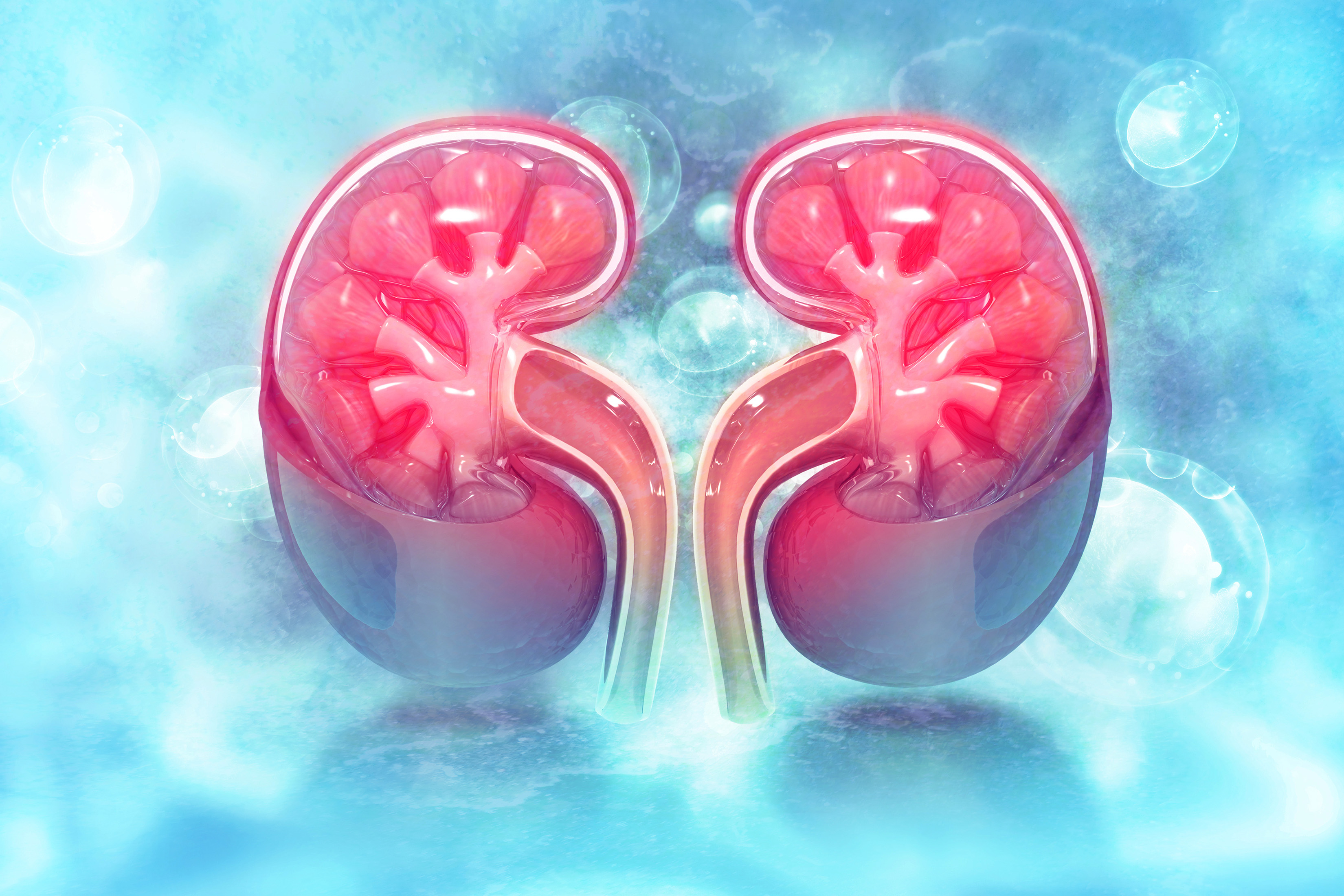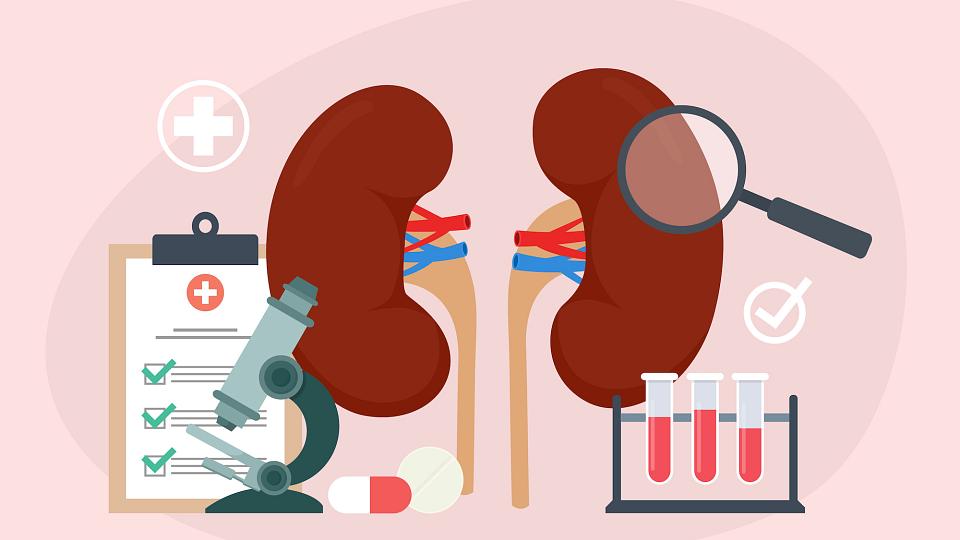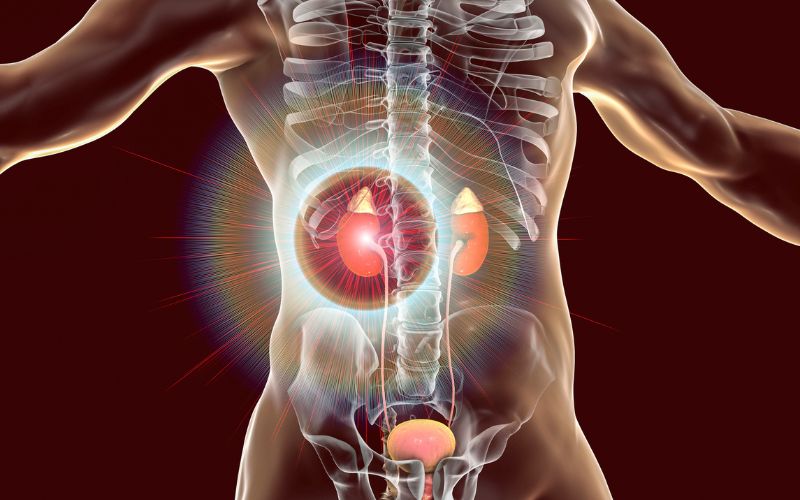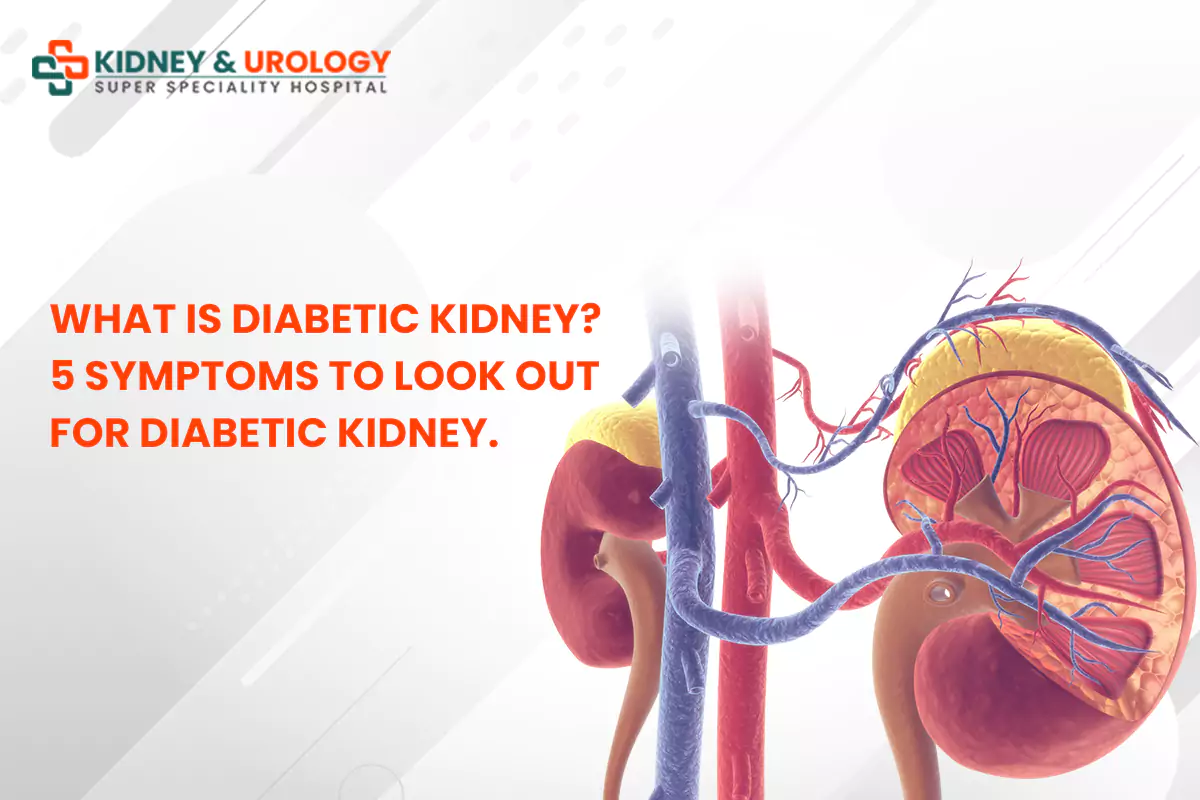Sodium Retention: Sodium retention can be a symptom or a complication of various kidney diseases, including
->Nephrotic syndrome: A condition where the kidneys excrete too much protein in the urine, leading to sodium and fluid retention.
->Chronic Kidney Disease (CKD): As kidney function declines in CKD, the ability to regulate sodium balance also decreases, leading to sodium retention.
->Congestive Heart Failure (CHF): The heart is unable to pump blood effectively, leading to fluid buildup in the body and subsequent sodium retention.
->Liver cirrhosis: Cirrhosis can lead to hormonal imbalances and decreased blood flow to the kidneys, leading to sodium retention.
->Renal artery stenosis: Narrowing of the renal arteries can reduce blood flow to the kidneys and cause sodium retention.
Hormonal Imbalance: Kidney diseases can also affect the balance of hormones that regulate fluid balance, such as antidiuretic hormone (ADH) and renin-angiotensin-aldosterone system (RAAS) Hormonal imbalances can affect the kidney in several ways:
->Adrenal gland disorders: Imbalance in hormones produced by the adrenal gland, such as cortisol, can lead to high blood pressure and damage the kidneys over time.
->Diabetes: Uncontrolled diabetes can lead to high blood sugar levels and damage the blood vessels in the kidneys.
->Thyroid disorders: An overactive or underactive thyroid gland can affect the kidney's ability to regulate fluid and electrolyte balance.
->Parathyroid hormone imbalances: Imbalance of parathyroid hormone can lead to high levels of calcium in the blood and damage the kidneys.
->Menopause: Hormonal changes during menopause can increase the risk of developing kidney problems, especially in women with other risk factors such as high blood pressure or diabetes.
Fluid Overload: Fluid overload in the kidney refers to a condition where there is an excessive accumulation of fluid in the body, often as a result of an imbalance between fluid intake and elimination. This can lead to a number of health problems, including edema (swelling), shortness of breath, and increased pressure on the heart and blood vessels.
Symptoms of water retention due to kidney disease
Water retention due to kidney disease can cause a number of symptoms, including:
-
Edema (swelling): The most common symptom of water retention, edema can cause swelling in the legs, ankles, feet, and hands.
-
Weight gain: Rapid weight gain due to fluid accumulation can be a sign of water retention.
-
Shortness of breath: Fluid accumulation in the lungs can cause shortness of breath, especially during physical activity or lying down.
-
Abdominal swelling: Fluid accumulation in the abdominal cavity can cause bloating and swelling in the stomach area.
-
Fatigue: Excessive fluid accumulation in the body can cause fatigue and decreased energy levels.
-
Hypertension (high blood pressure): Water retention can increase blood volume and lead to high blood pressure.
-
Decreased urine output: When the kidneys are not able to remove fluid effectively, urine output may decrease.
It is important to consult with a kidney specialist doctor if you experience any symptoms of water retention, as it can be a sign of an underlying condition that needs to be addressed. Early detection and treatment can help prevent complications and improve overall health.
Share Now














Request A Callback